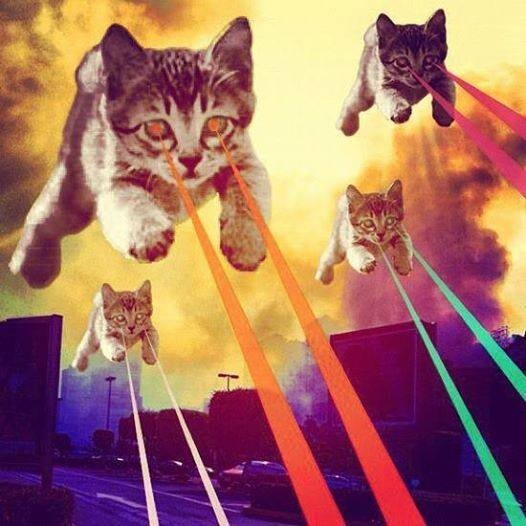The central goal of these posts on LinkedIn – known as Notes on Language for Writers, or by the more cogent Honesty in Speech – is to tell people how they can become better writers by not doing certain things, i.e. not using certain words or phrases.
This at-first-blush negatively styled concept is as old as the world. These days, it applies in areas as diverse as consumer products, marketing, fitness, and music. (Also the Ten Commandments, but that’s a topic for another post, on another platform.)
To be sure, I devote plenty of time to discussing alternatives to the tired expressions that litter our speech and writing. Still, as the banal-but-true saying goes, before another door opens, one must close. That’s why we always start with understanding which mode of expression is holding you back, i.e. which one has to go.
And so, if you want to get better at speaking or writing in a convincing, engaging, compelling, and yes – authentic manner, do the opposite. Take the words that seem all those things to you and throw them out. Go on a ketogenic word fast, and when you come back to eating word carbs and proteins, use other words better suited to the task.
Here are a few illustrations of the general principle, proving that do-the-opposite is in the air – or, for the culturally pretentious among us: part of the zeitgeist.
Case in point. A Wall Street Journal article on de-influencers tells us that after years of influencers pushing product on people, a rising cohort is taking a different approach: telling people what not to buy.
“We’re constantly being fed, ‘You need to try this product,’ ‘You will love this product.” De-influencing is an attempt to change that.”
The term refers to people speaking critically about products on platforms where endorsements run rampant. De-influencing videos may steer consumers toward cheaper alternatives… or discourage them from spending money in certain categories altogether.
Last year, entrepreneur and former Real Housewife Bethenny Frankel earned headlines for her unapologetic and critical reviews of popular beauty products. “I wanted the glow. I wanted to glow like they glowed,” Ms. Frankel said of influencers promoting cosmetics. In trying out popular products herself, she’s found that some of them don’t live up to the hype.
Sound familiar?
Ask yourself whether that 18th use of the word ‘amazing’ in a conversation or that 8th ‘unpack’ in a newsletter maintains that descriptive glow you were originally after.
Case in point. Louis Grenier 🤘, of STFO fame, recently wrote in this post that “instead of just asking:
→ What are we going to say?
→ What are my competitors doing?
→ What tactics should we focus on?
→ Who are the people we seek to serve?
→ What channels should we spend time on?
→ Where are my competitors investing their cash?
Also ask:
→ What are we NOT going to say?
→ What are my competitors NOT doing?
→ What tactics should we NOT focus on?
→ Who are the people we DON’T seek to serve?
→ What channels should we NOT spend time on?
→ Where are my competitors NOT investing their cash?
The latter is as important (if not more!) as the former.”
Merci for the insight, Louis. Sometimes it’s simply saying no now that gets us to an infinitely better yes down the road.
Case in point. Doing the opposite to get better at that main thing that you do is what the deservedly-much-lauded-by-physical-therapists-and-weekend-warriors-everywhere The Kneesovertoes Guy has been advocating for years, teaching people how to, among other things, walk backwards for improved knee health. Try it yourself. I did. It really works, and it’s free.
Case in point. Over a decade ago, I learned a Chuck-Norris-level bio-hack from a former student of Alexander Slobodyanik, once an internationally renowned pianist and a stalwart of the Soviet School of Piano, who had likely learned it from someone whose lineage went as far back as Cortot – or even that guy’s teacher: a little-known Franco-Polish dabbler on the old 88 keys named F. Chopin.
What’s the hack?
A pianist first plays the problematic passage, then crisscrosses her hands while playing the same notes as before – just an octave higher for the left hand and an octave lower for the right. This rewires her brain with a parallel perspective, so that when she goes back to the regular hand position, she can use that perspective to play more smoothly. To paraphrase the immortal Zohan, it works every time. I’ve seen this; I’ve done this; trust me: you want this.
And since we’ve gone ahead and mentioned Chuck Norris, who also happens to be Zohan’s spiritual grandfather, we can’t leave you behind enemy lines without a Chuck Norris joke that also happens to be an effective illustration of our thesis.
What’s the joke?
“When Chuck Norris enters a room, he doesn’t turn the lights on, he turns the dark off.”
After all, that’s all we’re trying to do, isn’t it? Writing well – really well – is like turning the lights on; but it starts with turning the dark off. That means resolving not to write poorly anymore: not to use generic, misapplied, overused words, phrases, concepts. To be satisfyingly, joyously precise instead of dopamine-depleted lazy.
Is there anyone else I can quote to buttress my point?
Is there anything in this universe more powerful than Chuck Norris?
Yes, actually.
What is that almighty entity?
Cats.
During his fascinatingly mind-and-consciousness-expanding conversation with Tufts biologist Michael Levin, machine-learning expert and Renaissance man Lex Fridman stated unequivocally that cats “are running the world… Despite not [caring] about humans with every ounce of their being, they somehow got millions and millions of humans to take them home… Not only the physical space… they took over the digital place. They got themselves literally inside the memes that become viral and spread on the Internet, and they’re the ones that are… controlling humans.”
And now I ask you, Is there anything out there more powerful than cats?
Yes, actually.
Obviously.
Kittens.
And if you keep misusing ‘great’, ‘love’, ‘genius’, and ‘journey’, especially in writing, these avenging kittens are coming for you, my friend.





